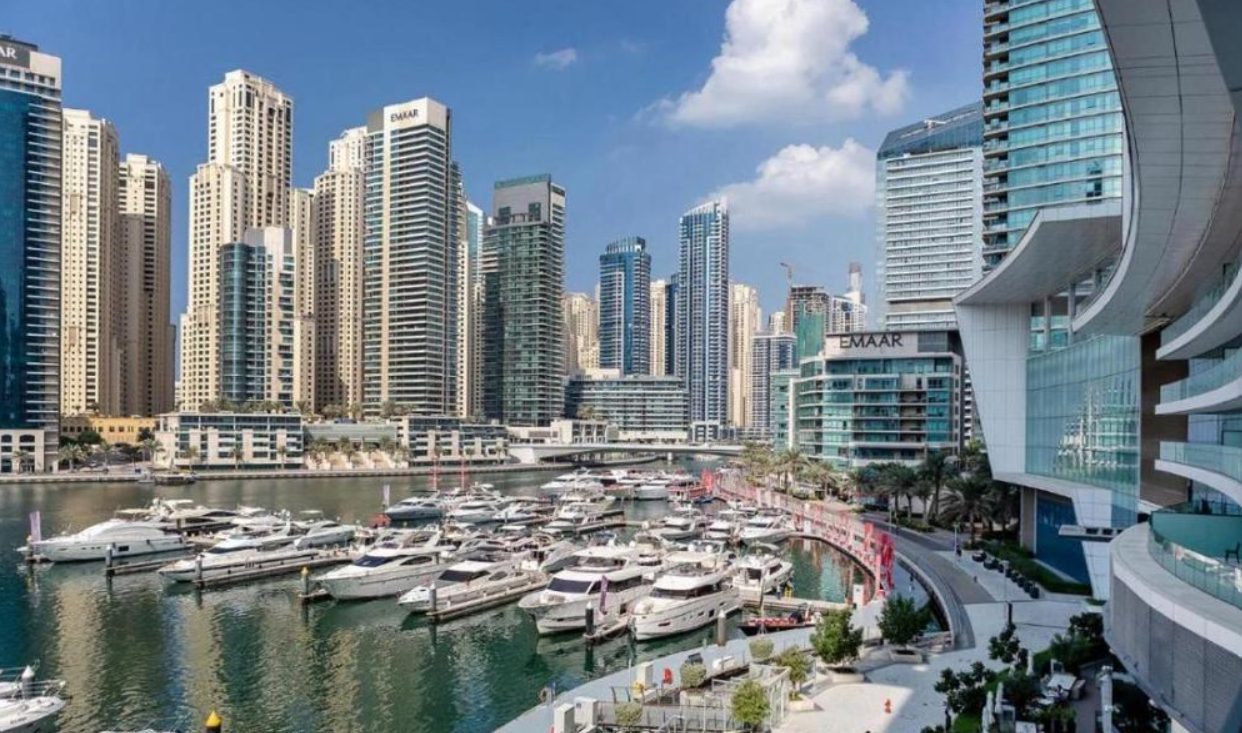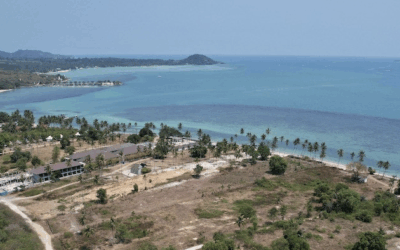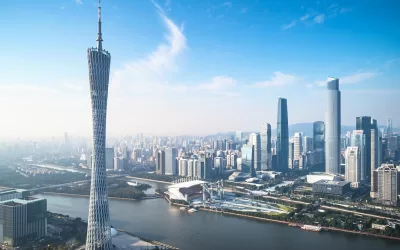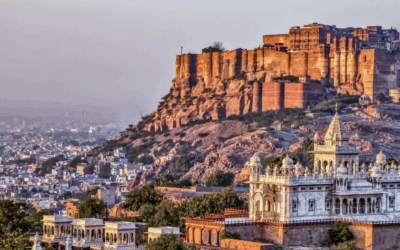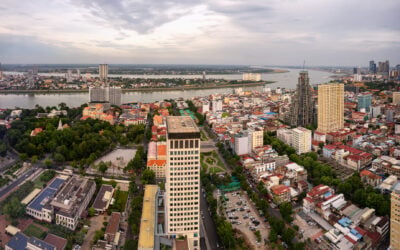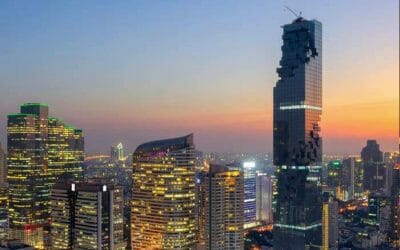Dubai has emerged as one of the world’s most dynamic real estate markets over the past two decades.
The glittering city on the Persian Gulf attracts property buyers from across the globe with its tax-free environment, modern infrastructure, and luxury lifestyle.
However, Dubai’s housing market is not without risks and volatility. Prices have fluctuated significantly in cycles, influenced by factors including oil prices, geopolitical tensions, and oversupply concerns.
As a foreign investor, it’s crucial to understand the UAE property market’s drivers, trends, and laws before taking the plunge.
In this guide, we’ll dive into Dubai house prices, top expat neighborhoods, the purchasing process, and the pros and cons of purchasing real estate in the UAE.
Dubai’s Housing Market
Way back in 2002, Dubai opened its property market to foreign freehold ownership in designated zones. This triggered an immediate development boom.
The city’s real estate sector has matured since then, but remains heavily influenced by external economic factors and sentiment.
The 2008-09 global financial crisis hit Dubai hard, with property prices plunging over 50%. Values rebounded sharply from 2012 but stayed subdued in the years after amid lower oil prices and continued oversupply.
Recently though, Dubai real estate values increased by over 30% in the past few years since 2020.
Geopolitical issues have created new demand among wealthy foreign buyers to diversify offshore. Dubai is one of the top beneficiaries from this trend.
Because of this, Dubai has ranked as one of the world’s best performing housing markets over the past few years.
Average Home Prices in Dubai
According to data from property consultants Knight Frank, the average house price in Dubai stood at AED 3.3 million (USD $900,000) as of 2024.
However, the cost of real estate in Dubai varies significantly based on the property type, size, location, and amenities.
On the lower end, older apartments in outlying areas sell from AED 400,000 (USD $110,000). Mid-range villas in suburban communities average AED 2-3 million (USD $550,000 – $820,000).
Luxury penthouses or beachfront mansions can easily cost upwards of AED 50 million (USD $14 million).
In terms of price per sqm, Dubai properties average around AED 12,000 (USD $3300). This places the city in the mid-range among global hubs – more expensive than upcoming cities but cheaper than prime markets like Hong Kong, New York, or London.
Popular Areas to Buy a House in Dubai
You’ll find a wide variety of neighborhoods in Dubai that cater to different lifestyles and budgets.
Generally speaking, Palm Jumeirah and Downtown Dubai are the city’s most expensive places to buy property. The former is known for large mansions and landed property, while the latter has plenty of costly condos and penthouses.
Besides those two, Dubai Marina and Hills Estate are two popular places to live as an expat.
Cheaper property in Dubai can be found further out into the suburbs. It’s indeed possible to find property for barely a few hundred thousand dirham if you search hard enough!
Downtown Dubai
Downtown Dubai is the city’s buzzing central district and primary business hub. It’s home to iconic landmarks like the Burj Khalifa (the world’s tallest building), the Dubai Mall, and the Dubai Fountain.
Living in Downtown puts you in the heart of the action, with world-class shopping, dining, and entertainment right at your doorstep.
Expats working in offices in the Downtown area choose to live here for an easy commute. The neighborhood has a mix of high-rise apartments and serviced residences catering to different tastes and family sizes.
However, the central location and prestige of downtown addresses mean that real estate prices are among the highest in the city.
Luxury apartments in Downtown Dubai start at around AED 2 million, with penthouses and full-floor units commanding upwards of AED 50-100 million.
For investors, the downtown area offers strong rental demand but lower yields compared to more affordable districts.
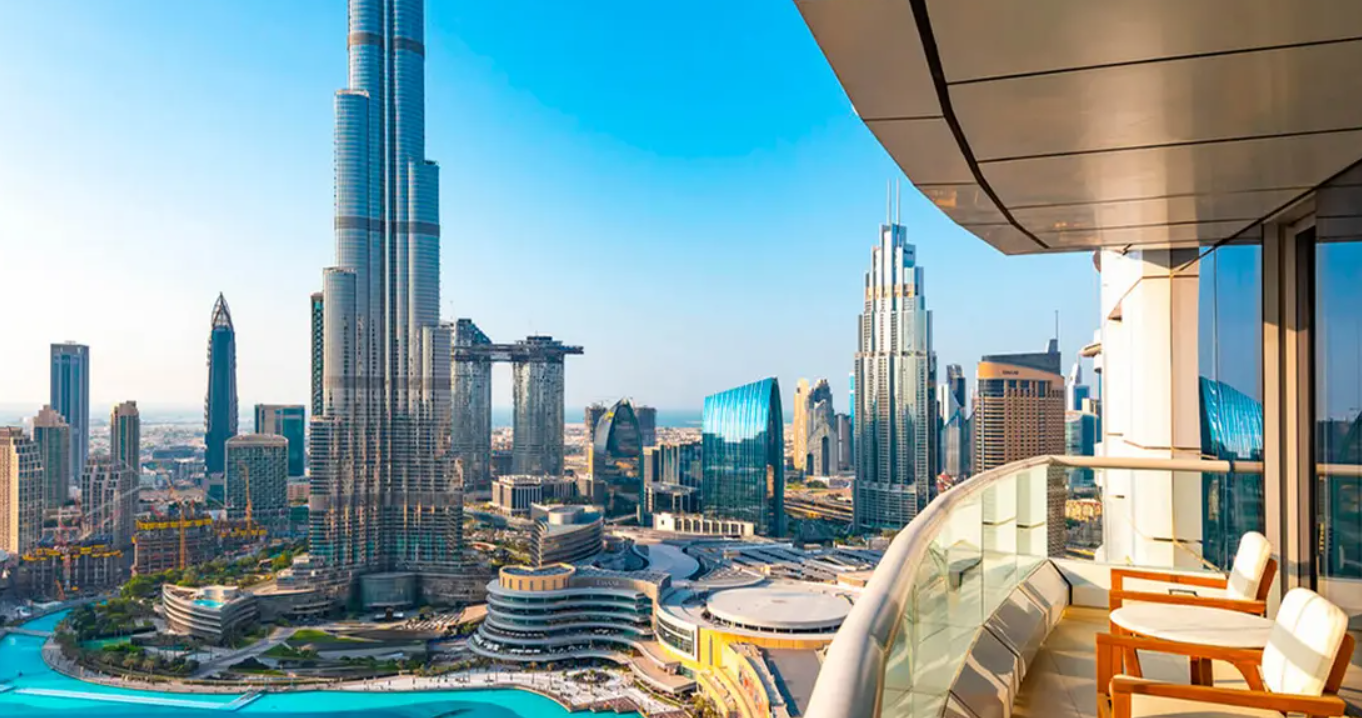
Downtown Dubai’s skyline is unmistakable, with the Burj Khalifa as its centerpiece. Naturally, it’s one of the most expensive places in Dubai to buy real estate.
Palm Jumeirah
Dubai’s iconic man-made island, built in the shape of a palm tree, Palm Jumeirah is often called the “eighth wonder of the world”.
The Palm is home to glitzy beachfront apartments, villas, luxury resorts, and attractions like the Atlantis hotel and Aquaventure waterpark.
Living on the Palm offers a unique island lifestyle minutes away from the mainland. Residents enjoy access to private beaches, marinas, beach clubs, and a growing number of dining and shopping options.
Most apartments come with resort-style amenities like pools, gyms, and concierge services.
Property on the Palm ranges from studios to custom-built signature villas. Entry-level apartments start at around AED 1 million, while garden homes and signature villas can easily cost AED 10-100 million.
The Palm’s unique attributes and global profile mean it commands a premium, with prices averaging 20-50% higher than comparable properties elsewhere.
For investors, the Palm historically delivered high rental yields, but oversupply in recent years has pressured rents. The most desirable properties are those with direct beach or marina access and unobstructed sea views.
Dubai Marina
Dubai Marina is a lively waterfront community built around the world’s largest man-made marina.
Located on the western end of the city’s coastline, the Dubai Marina has especially seen rapid development over the past decade to become a coveted luxury housing destination.
The Marina is known for its yacht club, promenade, and vibrant dining and café scene. Residents love the walkable lifestyle and proximity to the beach at JBR. The area is popular with young professionals and couples seeking a buzzing social life.
Most properties in Dubai Marina are high-rise apartments, with a mix of older and newer towers. The newer buildings tend to have more extensive facilities like lap pools and children’s play areas. Many homes offer marina views, which command a premium.
Prices in Dubai Marina start at around AED 600,000 for older studios, with most two-bedroom units trading at AED 1.5-3 million.
Penthouses and larger family apartments can reach AED 10-20 million. Investors can find gross rental yields in the 6-8% range, but should factor in service charges and cooling costs.
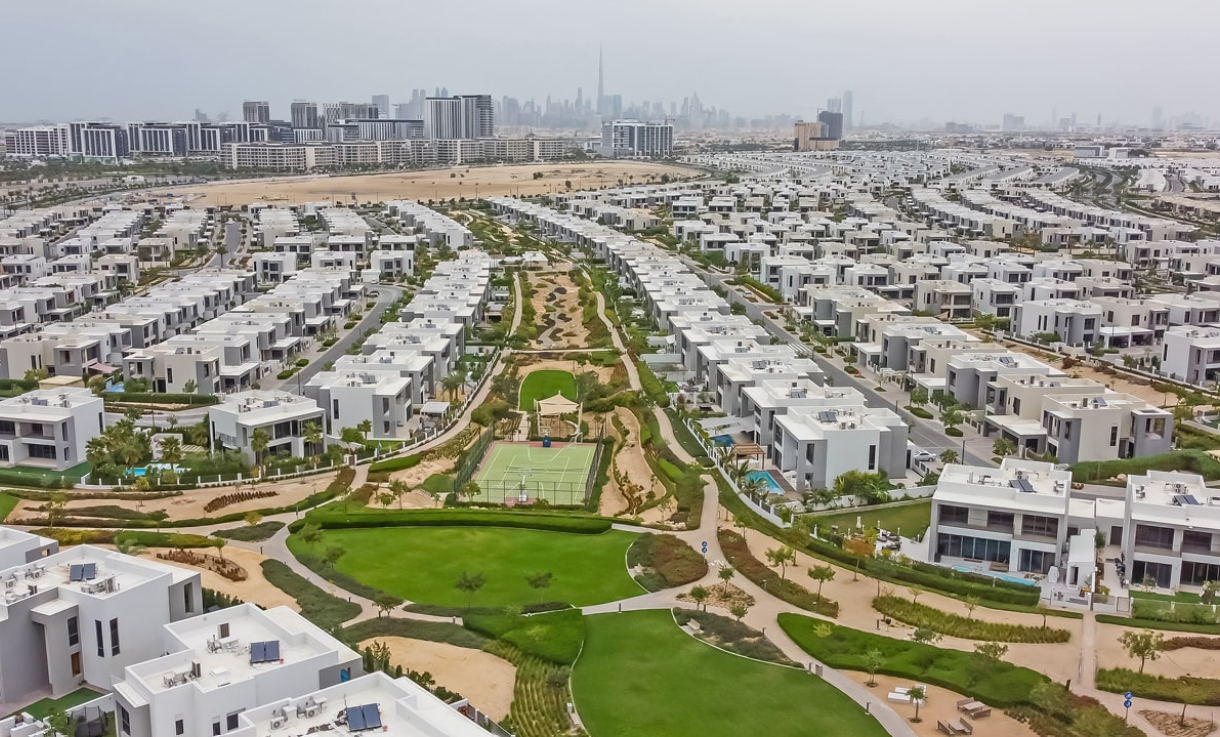
Dubai Hills Estate is one of the largest development projects in the country. Time will tell whether it’ll live up to its lofty promises.
Dubai Hills Estate
Jointly developed by Emaar and Meraas, this massive 2,700-acre “city within a city” will feature extensive green spaces, world-class amenities, and a championship golf course.
Dubai Hills offers a mix of apartments, townhouses, and villas across different sub-districts. Standalone luxury villas are set around the golf course, with apartment units and townhouses closer to the community center and mall.
Properties in Dubai Hills are designed for family living, with ample indoor and outdoor space.
The area has a suburban feel while still being within 15 minutes of Downtown Dubai and the airport. Residents have access to parks, playgrounds, sports facilities, and bicycle trails.
Townhouses in Dubai Hills start at around AED 1.5 million, with most villas trading between AED 3-10 million. At the top end, mansions can reach AED 50-100 million.
As a new community, Dubai Hills offers investors the chance to enter at pre-construction prices. However, the area is still developing, so rental demand and yields aren’t tested.
Prospective buyers should also factor in the potential for construction delays which are unfortunately common in Dubai, even among large property developers.
Purchase Process for Foreign Investors
Foreigners can buy property in Dubai on a freehold basis in designated areas like Downtown, Dubai Marina, and Palm Jumeirah. In other districts, only leasehold ownership or usufruct rights may be available.
To complete a purchase, you’ll need to engage a registered real estate broker and hire a lawyer to draft the sales agreement.
A deposit of 10-25% is typically paid to the developer or seller, with the balance due in stages for off-plan properties or upon transfer for completed units.
Buyers should budget around 6-7% of the purchase price for transaction costs like transfer fees, registration charges, agent commissions, and mortgage fees. There is no annual property tax in Dubai, although developments may charge maintenance fees.
It’s important to conduct thorough due diligence on the developer and project before signing a contract, as delays and quality issues have been common in the past.
Foreign property investors should also be aware that residence visas in Dubai are not automatically granted with property ownership.
Should You Buy Property in Dubai?
After a post-pandemic surge, Dubai’s housing market is expected to cool in the coming years as global economic headwinds bite. Most analysts predict modest single-digit price growth in 2023-24, with villas outperforming apartments.
The bullish case for Dubai real estate rests on the city’s continued appeal as a business and tourism hub, its successful handling of the pandemic, and initiatives to boost demand like retirement and freelance visas.
The UAE’s strong fiscal position and diversification drive also support Dubai’s real estate market.
However, while Dubai does offer opportunity for foreign investors, it’s not without serious challenges. Risks remain in the form of high interest rates and a dampening effect of the strong US dollar on foreign buyers.
Oversupply also continues to loom over segments like high-end apartments, which could see prices stagnate.
As such, investors should take a selective approach, focusing on established locations with unique selling points and strong community amenities.
Villas and serviced apartments in Dubai that catering to a growing pool of remote workers are likely to be the most resilient assets.
As with any cross-border property investment, extensive research, professional advice, and a long-term mindset are essential. It certainly isn’t any different in Dubai.
Dubai’s unique blend of beaches, modernity, and tax advantages will continue to attract global property buyers. Yet as the market matures and faces headwinds, investors must be increasingly savvy and selective to succeed.
Dubai Real Estate Prices: FAQs
How Much Does Property in Dubai Cost?
The average cost of housing in Dubai AED 3.3 million (USD $900,000) or about $3,300 per square meter.
With that said, it's possible to spend way above or below that number. Real estate prices depend on location, amenities, and many other factors.
What's the Most Expensive Area of Dubai?
If you're looking to buy a house in Dubai, Palm Jumeirah is the most expensive area for luxury villas and large mansions.
Meanwhile, penthouses in Downtown Dubai cost the most out of any condo in the city.
What's the Cheapest Neighborhood to Live in Dubai?
The least expensive parts of Dubai are to the north, out near the airport. Consider places like International City, Al Qusais, Al Nahda.
Dubai South, along with several new neighborhoods toward the east, also have plenty of cheaper housing options.
Can Foreigners Buy Property in Dubai?
Yes, foreigners can own property in Dubai on a freehold basis in designated areas.
These areas include several of the city's most popular neighborhoods such as Downtown Dubai, Palm Jumeirah, and Dubai Marina.

